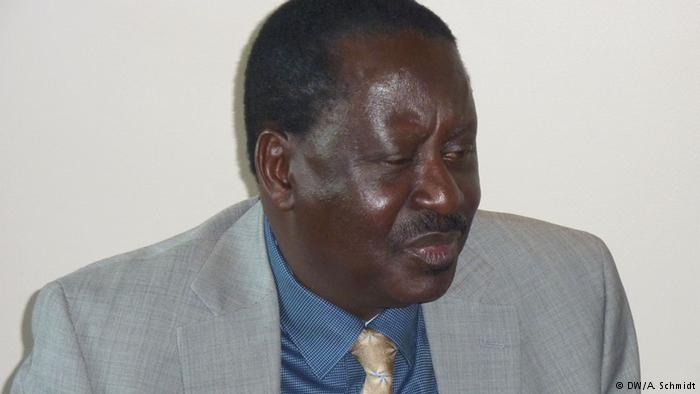Kenyans are gearing up for a presidential election in the first week of August and I have the effrontery to assert that it will be one of the toughest political battles for supremacy since independence from Britain more than five decades ago.
Toughest! Yes, because Raila Odinga, who belongs to the Luo ethnic group inhabiting Nyanza region on Lake Victoria, is one of the principal opposition contestants.
Septuagenarian Odinga is hungry for the presidency that has eluded him at three previous elections.
This time, he has teamed up with Musalia Mudavadi, the Amani National Congress party leader, who is a member of the Luhya ethnic group, Kenya’s second largest. Mudavadi clinched the third place during the 2013 election.
Mudavadi and Odinga have launched a new opposition coalition called National Super Alliance (NASA).
On Thursday, the alliance officially named Odinga as its presidential candidate.
I believe this is a clear indication of the trust and high respect that senior colleagues in the opposition have for a man who was imprisoned many times for persistently criticizing the government during the reign of Daniel Arap Moi.
NASA looks politically powerful on paper but it remains to be seen whether it can oust the equally powerful Jubilee Party.
Uhuru Kenyatta is to contest the presidential election for a second and final five-year term. In the strongholds which helped him to victory in the 2013 elections, he is stronger than he was before.
Those strongholds include the expansive Central Kenya region and the equally vast Rift Valley region, birthplace of Vice President William Ruto, a member of the Kalenjin community, Kenya’s fourth largest ethnic group.
Ruto is a key ally of Kenyatta and can be expected to boost Kenyatta’s share of the vote as he did in 2013. The vice president commands a big influence within his Kalenjin community to which retired President Daniel Arap Moi belongs. The community populates the Rift Valley region, west of the Kenyan capital Nairobi.
Kenyatta, the son of Jomo Kenyatta, the founding father of the Kenyan nation, has already strengthened the ruling Jubilee Party by bringing in several opposition groups and their leaders.
Kenya has 42 ethnic communities. Although the communities refrain to a larger extent from describing themselves as members of this or that tribe, scholars and researchers contend that ethnicity still plays a pivotal role in Kenyan politics.
The two principal presidential contestants in Kenya are from different ethnic communities. Kenyatta, who comes from the Kikuyu ethnic group, the largest community in the country, leads the Jubilee Party. Raila Odinga, who comes from the Luo group, as mentioned earlier, is the doyen of opposition politics in Kenya and the leader of the Coalition for Reforms and Democracy, CORD, which has metamorphosed into National Super Alliance.
Judging from past elections, the presidential candidates are unlikely to spend much campaign time wooing their own ethnic communities.
It is more probable that they will be undertaking officially arranged campaign tours, as well as impromptu visits, to all corners of the country. They will be hoping to persuade members of other communities to vote for them.
The candidates have the arduous task of catching votes from smaller tribes’ communities because the number of votes from their own ethnic groups will not be enough to see them clinch victory.
As the countdown to the presidential election in Kenya continues, I am optimistic that it will be free and fair because of the political openness of the incumbent, Uhuru Kenyatta, on electoral-related issues. The opposition, too, has ceased making its frequent threats of street demonstrations.
Equally, the throwing of bitter words between members of the two political camps, continues to diminish. Suffice to say, in contrast to previous recent elections, the political atmosphere remains relatively serene in Kenya. The violence which characterized some elections in the past may not be witnessed. Internal security has been greatly improved and general policing of major towns and rural places has been greatly boosted.
Source: DW/ James Shimanyula



